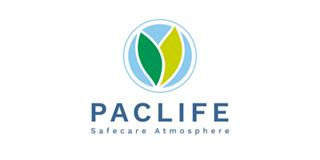

Paclife
Packaging
Trends, Challenges, and Innovative Packaging Solutions for Chilean Kiwi
MAP covers and PacLife packaging play a fundamental role in ensuring the quality of kiwi during its transportation and storage

It is widely known that kiwi, in all its varieties, stands out for its nutrients and vitamins, making it the ideal companion for current food trends. For this reason, its production and consumption are of great importance to producers worldwide, who constantly monitor the total productions, both domestic and foreign.
Chile stands out globally in the production and export of kiwis. Recent analyses of Chilean fruit farming have revealed that sprouting was lower due to a decrease in the number of chill hours experienced by the influence of the El Niño current. Despite this obstacle, it is believed that it is possible to reach a volume close to 130,000 tons in the 2024 season, a figure very similar to the previous year. Although there is an approximate delay of 10 days in cultivation, it is estimated that the size of the fruit will remain similar to last year.
Globally, it is anticipated that the southern hemisphere will compensate for the lower supply from the northern hemisphere, as New Zealand has experienced significant growth in the production of yellow and green kiwis, contributing to an overall increase in the volume available in the international market.
The delay in sprouting in Chile, as Cruzat narrates, does not significantly affect the sale of kiwi, as it is a fruit that can be stored and has a sales period of 6 to 8 months. In addition, the business has evolved towards sales strategies throughout the season, allowing for better prices as time progresses. The cargo regulation is also being carefully managed considering the low sprouting, and it is expected to overcome this inconvenience.
Key Packaging Technology
Currently, with kiwi production in full swing, PacLife's MAP (Modified Atmosphere Packaging) covers and containers emerge as crucial tools to preserve all of its properties. These containers are equipped with PacLife additives, essential to ensure the fruit's quality during transportation and storage.
Furthermore, PacLife's modified atmosphere technology, specially designed for kiwi, incorporates zeolite through nanotechnology, regulating the production of ethylene, a critical gas in the senescence of the product. Technically, PacLife's packaging has demonstrated superior ethylene management, resulting in increased firmness and, consequently, achieving a better pulp-columella ratio with reduced weight loss.
In summary, these packaging advancements ensure that kiwi reaches its final destination in perfect condition, even during extended storage. Paclife offers specialized products such as "Dynamic Clear AR" for kiwis packed immediately after harvest and "Dynamic Clear AC" containers for kiwis stored in controlled atmospheres.
By combining advanced technologies like packaging, MAP covers, and modified atmosphere, PacLife raises the standards for kiwi storage and transportation. With a commitment to quality and adaptability to industry needs, PacLife guarantees that each fruit reaches its destination in optimal conditions.



.jpg)
.jpg)












